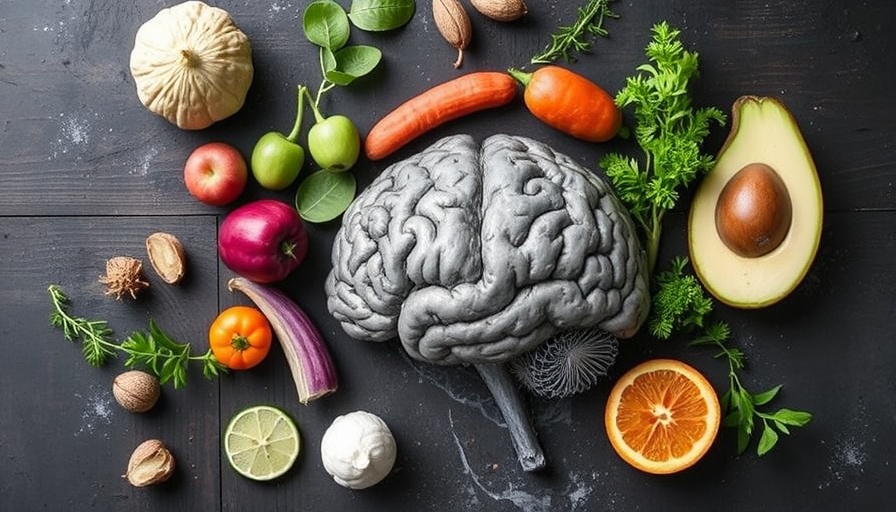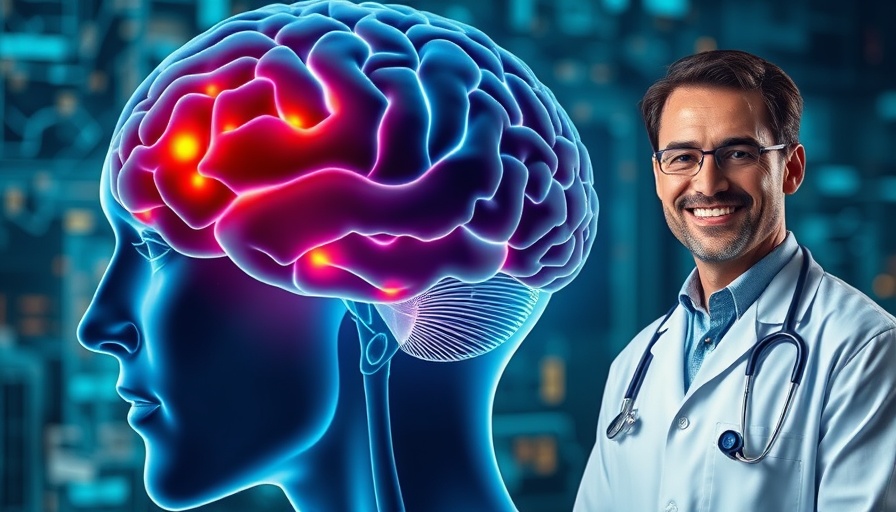
Understanding the Weight of Brain Fog
Feeling mentally foggy is something many of us can relate to at one point or another. It may manifest as memory lapses, concentration issues, and a general feeling of sluggishness. While stress and lack of sleep often steal the spotlight in discussions about cognitive clarity, recent studies suggest that our diet plays a crucial role in maintaining sharpness. In fact, as nutritionists note, nutrient deficiencies—particularly in vitamins B12, D, iron, and omega-3 fatty acids—are frequently linked to decreased cognitive function. With these nutrients, maintaining our mental acuity can be more within our reach than previously thought.
Diet's Role in Brain Function
So how do our meals translate to brain health? A fascinating study published in the journal Nutrients sheds light on a concerning trend: increased consumption of ultra-processed foods (UPFs) correlates with poorer cognitive performance. These foods, which typically harbor high sugar and chemical additives, can lead to spikes and crashes in blood sugar levels, leaving us feeling drained and foggy. Instead, aiming for a balanced diet rich in whole foods, lean proteins, and healthy fats can support sustained energy levels and mental clarity, making it easier to tackle daily tasks.
Exploring the Nutrient Connection
Particular nutrients have stood out in recent research for their role in fostering cognitive function. Vitamin B12, for instance, is essential for nerve health and the production of DNA and red blood cells. Deficiencies in B12 are associated with impaired cognitive performance and can lead to symptoms mimicking brain fog. Meanwhile, iron insufficiency can hinder oxygen transport in the bloodstream, further impeding mental function. Omega-3 fatty acids, found in fish and nuts, are known to enhance mood and memory; a lack of these healthy fats may be detrimental to brain health.
Real-Life Strategies for Clarity
Now that we understand the impact of diet on mental performance, how can we make meaningful changes? Here are some practical steps to help enhance your cognitive clarity:
- Embrace Whole Foods: Prioritize fresh fruits, vegetables, whole grains, and healthy fats in your meals. These foods not only nourish your body but also your brain.
- Monitor Sugar Intake: Aim to minimize processed foods that are high in sugars and additives. Instead, choose snacks with a good balance of protein and carbohydrates to keep energy levels steady.
- Stay Hydrated: Dehydration can exacerbate feelings of lethargy and clouded thinking. Drinking adequate water daily can significantly improve mental clarity.
- Consider Supplements: If you suspect you may be lacking key nutrients, talk to a healthcare provider about incorporating vitamin and mineral supplements into your routine.
- Mindfulness and Eating: Pay attention to what you're eating and how it makes you feel. Practicing mindfulness while eating can improve digestion and overall mental health.
Understanding Your Body
Recognizing the signs of brain fog often leads to a critical examination of one's lifestyle choices. If you frequently find yourself struggling with focus or memory, it might be time to assess your diet. Make note of what you eat and see if there are connections with feelings of mental clutter. In Pearl City, where a focus on health and wellness thrives, community resources like local wellness workshops or nutrition classes can provide additional guidance.
Future Trends in Dietary Awareness
The conversation around diet and mental clarity is evolving, with more individuals advocating for nutrition as preventive medicine. As awareness around the importance of diet grows, it is likely that we will continue to see a shift in how people approach food for brain health. Communities may begin to offer more education on nutrition and cognitive function, empowering individuals to make informed dietary choices more easily.
Take Action for Your Mental Clarity
In conclusion, understanding the relationship between your diet and brain function is essential for maintaining mental clarity. By making mindful choices about the foods you consume, you can begin to combat brain fog. For the health-conscious individuals in Pearl City, taking a proactive stance on nutrition is a step toward restful mental health. Reflect on your eating habits, consult with a healthcare provider if needed, and embrace the power of whole foods. Your mental wellness might just depend on it!
Interested in learning more practical tips for enhancing your overall health? Consider participating in a local wellness workshop or nutrition class to kickstart your journey!
 Add Row
Add Row  Add
Add 




Write A Comment